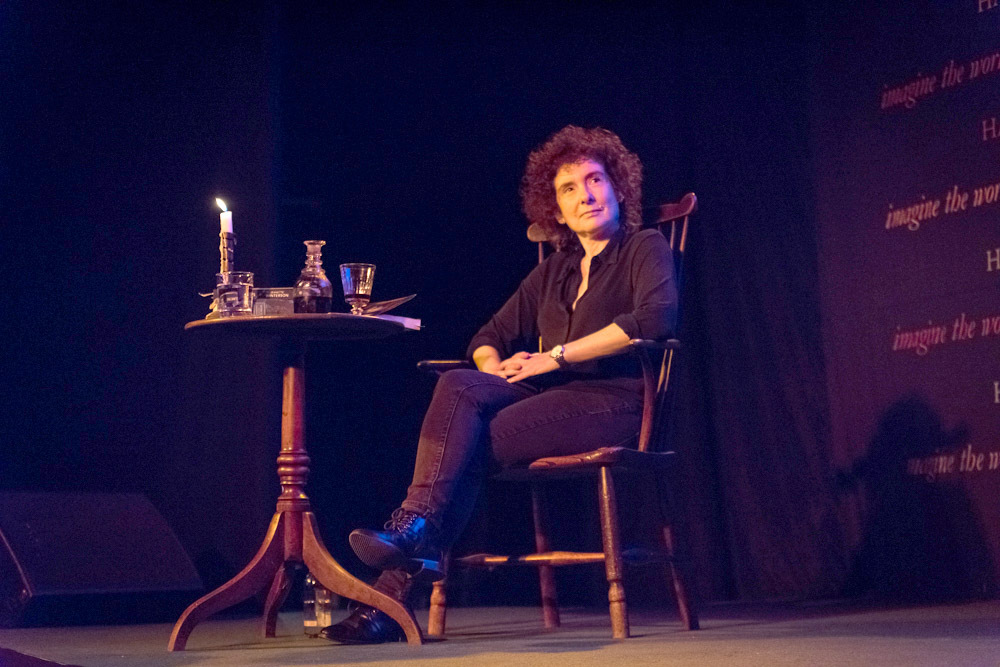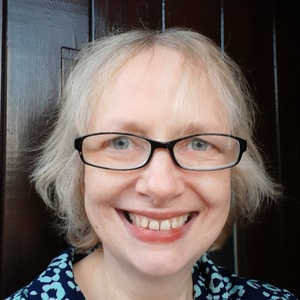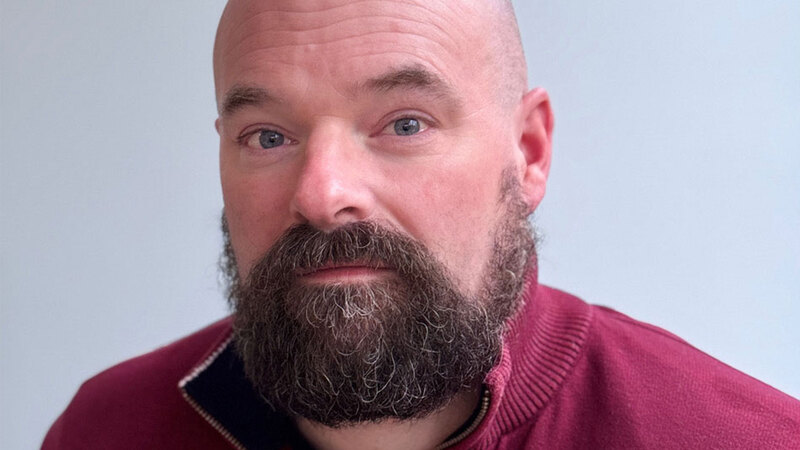Jeanette Winterson: Fighting the new Dark Ages
Jeanette Winterson knew she was ready to begin her new novel when she thought up a single line of text, the line which now ends the book: "Everything is imprinted for ever with what it once was."
She was walking down a London street at the time, looking up, as she likes to do, at the architectural gems of past centuries visible above the modern shopfronts of the city.
"London itself is a place so imprinted with its own past," she says. "I thought of that [line], and I began to think of other things that could come from that. I was thinking of fossil records, and our DNA, and the cosmic radiation in the universe that tells us so much; what could possibly happen to this planet if we manage to completely mess it up and make ourselves extinct‚and how it would roll on, and people would find us again one day as some other fossil record 65 million years later. Once I’d got the line, I could move into ideas; but until I’d got the line, I couldn’t."
The interview for Winterson’s novel The Stone Gods (Hamish Hamilton, September) is taking place at her London base in Spitalfields, itself a historical specimen dating from the 1790s: Winterson bought the steep-staired house, which now features Verde’s food shop on its ground floor, years ago, restoring it from dereliction.
Journalists from New Scientist have just departed: The Stone Gods has a touch of sci-fi about it, opening as it does in a just-future world‚of scientific advance but degenerate culture‚so polluted by human activity that mankind is preparing to head off to a new planet to make a fresh start.
This part of the book is far from fantasy, says Winterson. "Everything in that part of the book has been written about scientifically already, it’s very near. I don’t think the novel is without hope, but it is a danger signal for us, it’s meant to be, about where we’re going and what we’re doing, the kind of society we’re making happen. Until we look at ourselves, look at the human race and our potential for self-destruction, and the destruction of everyone else, I don’t think technology can really serve us."
The Stone Gods has Winterson’s typically unconventional structure: written in four parts, and riffing on the story of Robinson Crusoe, it features a character Billy/Billie, who is variously a man and a woman, with action moving between the present, future and past. In the first section, Billie Crusoe flees an authoritarian society in the company of a highly evolved robot of the species Robo sapiens, to join the perilous voyage to a new Blue Planet, a pristine place of apparently infinite possibilities. Later Billy is an 18th-century boy sailor marooned on Easter Island, finding love as the culture which produced the famous great stone heads is coming to an end, having brought about its own destruction. Another part of the book is set in Wreck City, a no-go zone peopled by outcasts and casualties post 3-War, a conflict which has ravaged the world. Amid themes of voyaging, shipwreck, self-destruction and transforming love, is an idea of new beginnings which turn out to be as old as the hills, and of an endlessly repeating world.
Some of the themes link to her previous adult novel, Lighthousekeeping. Winterson says that the cut-off point for a novel is almost arbitrary: "It’s more like weaving a rug, in a way. You cut the threads, but then the threads are still there to begin weaving the next magic carpet. I know the books are all separate, but I don’t really see them as separate." A
At one point she had seen Lighthousekeeping as a new beginning after a previous sequence of novels ending with The Powerbook, but now she has changed her mind. "I thought that, because The Powerbook was a big, gaudy, extravagant book, and I really used all my -arsenal in it. Then I really cut that away in Lighthousekeeping and went for something that is very simple in narrative terms, because I wanted to find another place to begin. But now, when I look at it all, I see that the books end-lessly talk to each other, just as they talk to other books, and I know that that conversation won’t stop until I do. It’s probably bad for writers to have theories about their work‚because goodness knows, there are enough academics who will do it, before and beyond the grave!‚but I’m sure now that it’s about continuity rather than separation.
"I don’t think you can escape your own history or the history of your race or indeed your planet. So instead of endlessly fleeing‚like the Greeks thought, fleeing from the Furies who were pursuing you‚it’s probably better to turn and face them. And with the new beginnings, I now know, both in life and in work, the past is always in there, although you can recast it and rework it, and genuinely find something that is fresh and liberating for you. ’Everything is imprinted forever with what it once was.’ I suppose that’s what I feel." Underground writing
Winterson says she finds linear narrative claustrophobic‚her way of working is to explore themes, or pictures, "in quite small blocks", and then wait for the connections to emerge between them. That kind of experimental spontaneity is essential to the creative process, she believes. "People are afraid of talking gibberish, afraid of writing things down which frighten them by their meaninglessness. Sometimes you have to do that. In a theatre rehearsal room, no one minds making a fool of themselves as they try to develop the text. Painters‚if you go down to Tracey Emin’s studio, she’ll just chuck paint around if she feels like it, or throw things together on the floor. I’m much more interested in a fluid, exploratory process."
Famously, a partial manuscript of The Stone Gods was left on the Underground by a Penguin employee, to be found by a passing stranger (and, luckily enough, Winterson fan); this episode has now found its way into the novel. "That’s the great thing about not writing sequentially‚you can incorporate new material very late in the day," says Winterson. "It wasn’t set up as a publicity stunt. When I found out they had lost it I was‚[ironic pause] disheartened‚and then I thought, ’I’ve still got more to write, I’ll just throw it in and see what happens’. If you write in kit form and then put everything together at the very last minute, the possibility is still open."
Winterson doesn’t see many other writers operating in the same way. "In some ways this is a difficult time for fiction writing; we’re losing that playfulness and spontaneity, and also just that lack of fear. Somehow, if a thing doesn’t immediately read like a good piece of journalism or a well-argued magazine article, we panic." She sees contemporary fiction as schizophrenic, polarised between naturalism on the one hand and fantasy on the other. "Either you’re completely in the world of Harry Potter and magic, or you’re meant to be somewhere in the Kingsland High Road being murdered outside a chip shop. I think a lot of young writers have become very formulaic."
Winterson believes in a literature where the focus is in on language‚exploring it, stretching its capacities for "beauty and surprise". "I do think that having the language encourages the thought, and if you continually shrink your vocabulary, you will shrink your range of ideas. It concerns me that much of the modern world‚the television, the internet‚is about reducing the scope of language and so the possibility of thought." She singles out novelists Ali Smith and David Mitchell for praise, but most of the time she reads poetry, she says, "because I want that kick of language. I can’t bear that loss of tension you get in a lot of fiction because the writer can’t be bothered. I don’t want to read pages and pages about somebody’s dreary existence‚dreary, even if they’ve just committed a murder or jumped off the Eiffel Tower, because the language is dead. I want it to live." She blames publishers "looking for product fiction", creative writing courses which teach "formulas" and the dynamics of the trade. "I do deeply regret the whole thing with the bookshops and these massive promotions‚either you’re in them or you’re not. There’s got to be room for books to swim along fairly modestly, and for the writer to be able to make a name for themselves without so much riding on it.
"One of the themes in the new novel is cultural decline: a society given over to mass illiteracy, people avoiding books, human brains evolving in a shrunken form because people don’t need to think any more. Does Winterson see herself as a guardian of endangered cultural values?
"Yes, absolutely, without any apologies," she says energetically. "I think of myself as a little scribe in the great abbeys of Cluny or Fontainebleu during the Dark Ages, desperately trying to hold onto something to pass to another generation‚I do! Because I think there is a bit of a Dark Ages in some ways, and I do think things need protecting and valuing. People are nervous of that because they think it smacks of elitism, but I don’t care about that.
"I think part of my job is not just about writing books, but also as being somebody who will remind people of things which are important and also how fragile they are. You know, there’s a strange paradox about art and culture, in that it’s very robust‚it can stand any amount of censorship and repression‚but it’s fragile, in that as soon as people begin to hold it in contempt and say it doesn’t matter, it breaks. We’ve got very clever now: we don’t censor anything, and we don’t burn books‚we just trivialise them. We say, none of this is actually very important. And that’s a very good way of rendering it completely unimportant."










